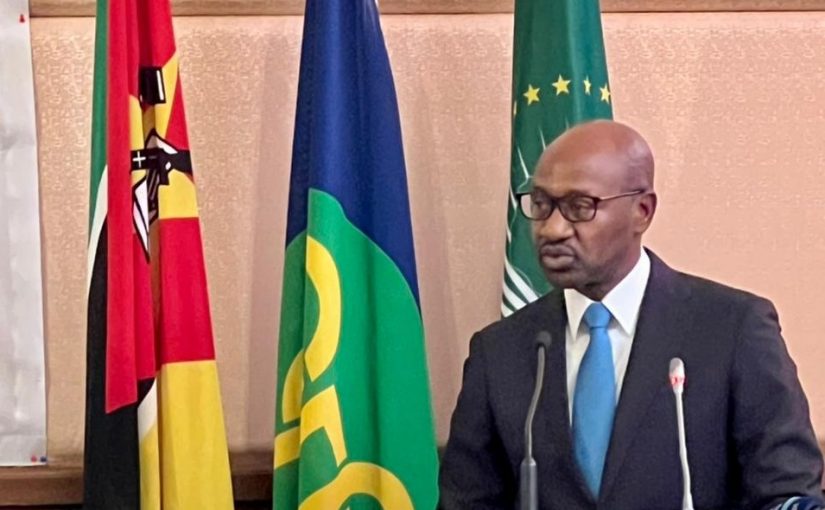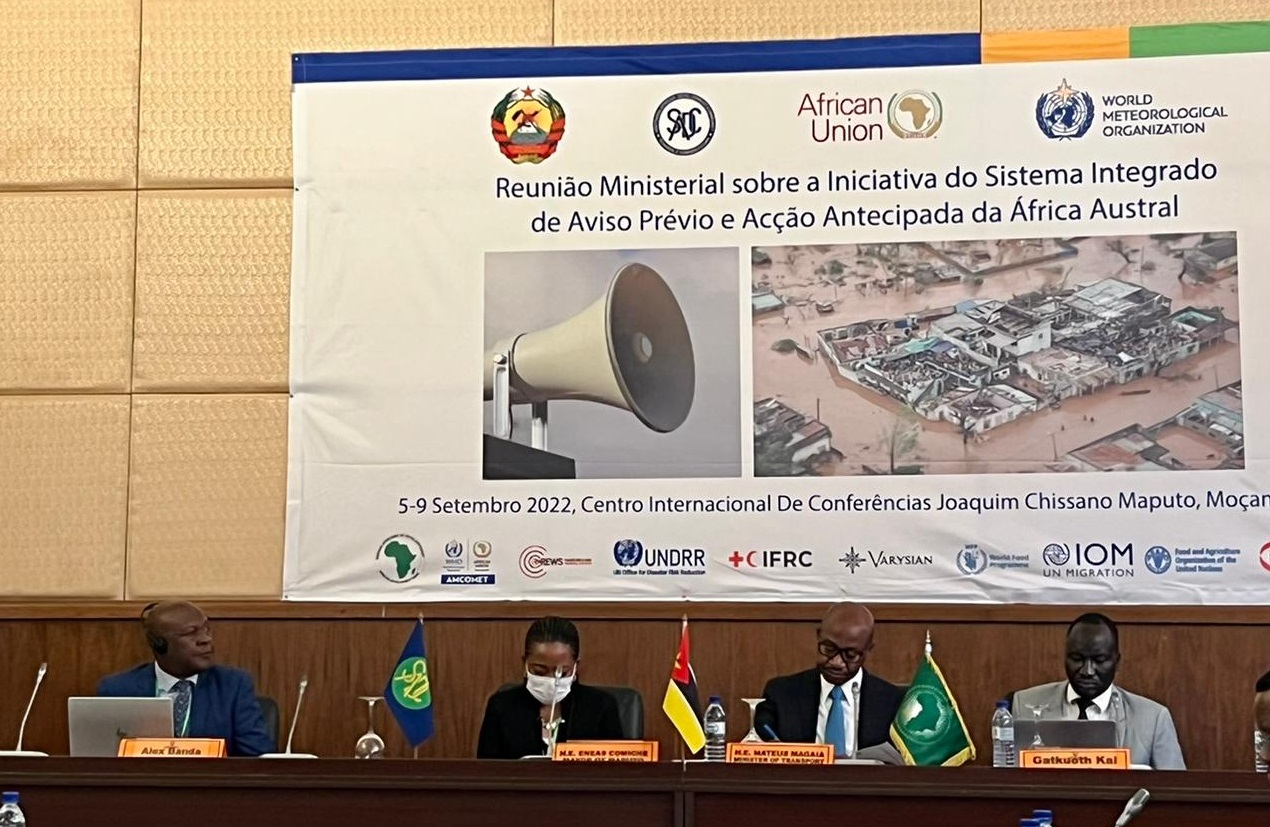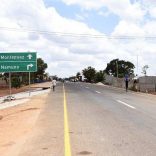Cahora Bassa Hydroelectric gives hope to Mozambicans - president
SADC seeks robust solutions to natural disasters

Photo: Twiter / @UNDRR_Africa
The Southern African Development Community (SADC) has pledged to seek robust mechanisms to reduce the risks of natural disasters, in order to respond to the increasing frequency and intensity of extreme weather events and to protect communities.
To that end, a ministerial meeting on Integrated Early Warning and Early Action Systems in Southern Africa is being held in Maputo from Monday to Friday, which will culminate in the drafting of a regional plan based on the impact of early action for resilience to natural disasters over the next five years.
Also read: Ministerial meeting in Maputo boosts Early Warnings and Early Action in southern Africa – WMO
Speaking at the Monday opening of the event, the Minister of Transport and Communications, Mateus Magala, said that the world, the African continent, Southern Africa, and Mozambique in particular, face cyclical occurrence of extreme weather events, namely floods, droughts, cyclones and storms that lead to loss of lives and significantly negative impacts, on several key socio-economic development sectors.
“In this context, the massive expansion of early warning systems in Southern Africa to protect people from the increasingly extreme impacts of climate change, a matter to be addressed at this SADC ministerial meeting, becomes urgent”, he said.
According to Magala, the SADC region should leave the meeting with concrete actions to anticipate and combat these phenomena, as well as a Regional Plan to guide the implementation of the Sendai Framework on Disaster Risk Reduction, in order to substantially increase the availability and access to early warning.
He added that the Maputo Ministerial Declaration, which will be considered and signed during this conference, will undoubtedly be one of the main results of the meeting, led by the World Meteorological Organization, SADC, the African Union Commission, the government of Mozambique and other cooperation partners.
For his part, the representative of the World Meteorological Organization, Wenhian Zhang, said that global warming increases the intensity of these climatic phenomena and he therefore considered it fundamental to provide more information to the public about the real impacts of natural disasters.
“We have been talking about the possibility of the occurrence of phenomena with greater intensity, and in the case of tropical cyclones, there are theories that indicate that, because of global warming, tropical cyclones may occur with greater intensity. So, it is necessary to provide more information, it is necessary that the information is not simply communicated but that it gives the scope of the type of impacts expected”, he added.
Opening Ceremony with welcoming remarks by the Government of #Mozambique🇲🇿. Southern Africa Ministerial Meeting on Integrated Early Warning and Early Action System Initiative. pic.twitter.com/ZevwXPL5qf
— UNDRR Africa (@UNDRR_Africa) September 5, 2022
That’s a wrap on Day 1 of the Southern Africa Ministerial Meeting on Integrated #EarlyWarningEarlyAction System Initiative in 🇲🇿
👉https://t.co/hcvmO7jXWZ pic.twitter.com/0h1Gm1wMWK— UNDRR Africa (@UNDRR_Africa) September 5, 2022
Official launch today in Maputo 🇲🇿 of the Southern Africa Ministerial conference on integrated Early Warning & Early Action System Initiative in presence of @wfp_mozambique @WFP_Africa @WMO @ifrc #UNDRR #AU #SADC Together to save & change lives 🇺🇳 pic.twitter.com/JqnFvtI0e0
— Pierre Lucas (@pierrejlucas) September 5, 2022













Leave a Reply
Be the First to Comment!
You must be logged in to post a comment.
You must be logged in to post a comment.